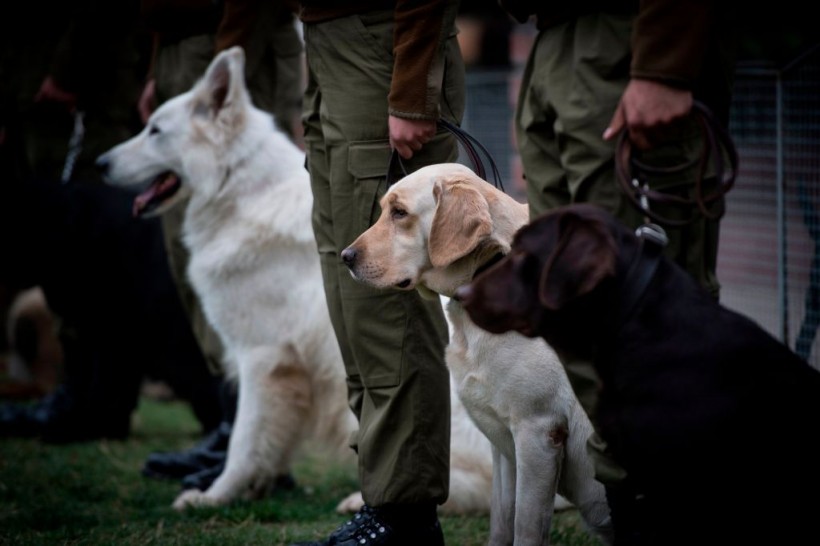Dog behavior, which ranges from being aggressive, defense, and sociable, among others, has long been thought to be based on dog breed.
However, a new study suggested that a canine breed is relatively insignificant when it comes to manifesting these animalistic tendencies and attitudes.
Destroying Breed Stereotypes

Researchers from the United States reported that only 9% of behavioral variations are linked with the canine breed; this is based on a data sample of 18,385 pet dogs where almost 50% were purebred, as per the paper published in the journal Science on Friday, April 29.
The study challenged popular dog breed stereotypes, such as golden retrievers and labradors are very sociable to humans, allegedly due to their genetic makeup.
Although the research approach does not rule out the correlation between dog breeds and their attitudes, the US scientists implied that these behavioral characteristics are solely based on individual dogs.
The scientists also emphasized that, in spite of the great variability among physical traits of dogs per breed, it does not entail those behaviors are also attached to it as well.
The team arrived at their conclusion by analyzing 2,155 genetic data from the sample combined with owner surveys.
Also Read: Following the Death of Companion, Dogs Shows Grieving Behavior According To Study
Stereotype: Friendly Breeds
Since domestic dogs emerged approximately 160 years ago, anecdotal and empirical evidence reportedly shows that the following canine breeds are considered to be friendly:
- Beagle
- Border collie
- Boston terrier
- Boxer
- Bulldog
- Cavalier King Charles spaniel
- Collie
- Golden retriever
- Irish setter
- Havanese
- Labrador retriever
- Newfoundland
- Petit basset griffon vendeen
- Pembroke Welsh corgi
- Poodle
- Pug
- Shih tzu
- Staffordshire bull terrier
- Vizsla
Stereotype: Aggressive Breeds
According to the American Society for the Prevention of Cruelty to Animals (ASPCA), aggression is the most common yet most serious problem among dogs.
The said behavioral trait has been responsible for why pet owners have sought professional help from animal psychologists, trainers, and veterinarians.
The ASPCA underscored that some of the most frequent aggressive behaviors or gestures are: growling, showing of teeth, biting in quick successions, lunging forward, snarling, snapping, and intense barking.
If there is a list of sociable dogs, below are reportedly the following dog breeds that have been stereotyped to possess aggressive traits:
- Chihuahua
- Dachshund
- Chow Chow
- Doberman Pinscher
- Dalmatian
- Rottweiler
- Jack Russell terrier
- German shepherd
- America Staffordshire
- Pitbull terrier
- Siberian husky
Crucial Factor
If not genetics, what is the most crucial factor that determines canine sociability or aggression?
Daniel Mills, professor of veterinary behavioral medicine at the University of Lincoln, suggested that genetic mechanisms alone are unable to control potential risky behaviors; this is because animals also have to make judgment calls based on the environment and developmental history, as per The Guardian.
Based on Mills' perspective, judgment on external factors, such as dog owner, training, existing threats, and upbringing are still the prevailing factors that can influence a pet dog's behavior.
In the US alone, 38.4% of households consist of pet dogs, while 25.4% have cats, they are followed by birds and horses with only 2.8% and 0.7% of pet ownership inside residences, as cited by the American Veterinary Medical Association (AVMA) from the 2017-2018 U.S. Pet Ownership & Demographics Sourcebook.
Related Article: Study: Dog Attitude Reflects Owner's Personality, But Here's the Catch
© 2024 NatureWorldNews.com All rights reserved. Do not reproduce without permission.

![Tsunami Hazard Zones: New US Map Shows Places at Risk of Flooding and Tsunamis Amid Rising Sea Levels [NOAA]](https://1471793142.rsc.cdn77.org/data/thumbs/full/70325/280/157/50/40/tsunami-hazard-zones-new-us-map-shows-places-at-risk-of-flooding-and-tsunamis-amid-rising-sea-levels-noaa.jpg)



